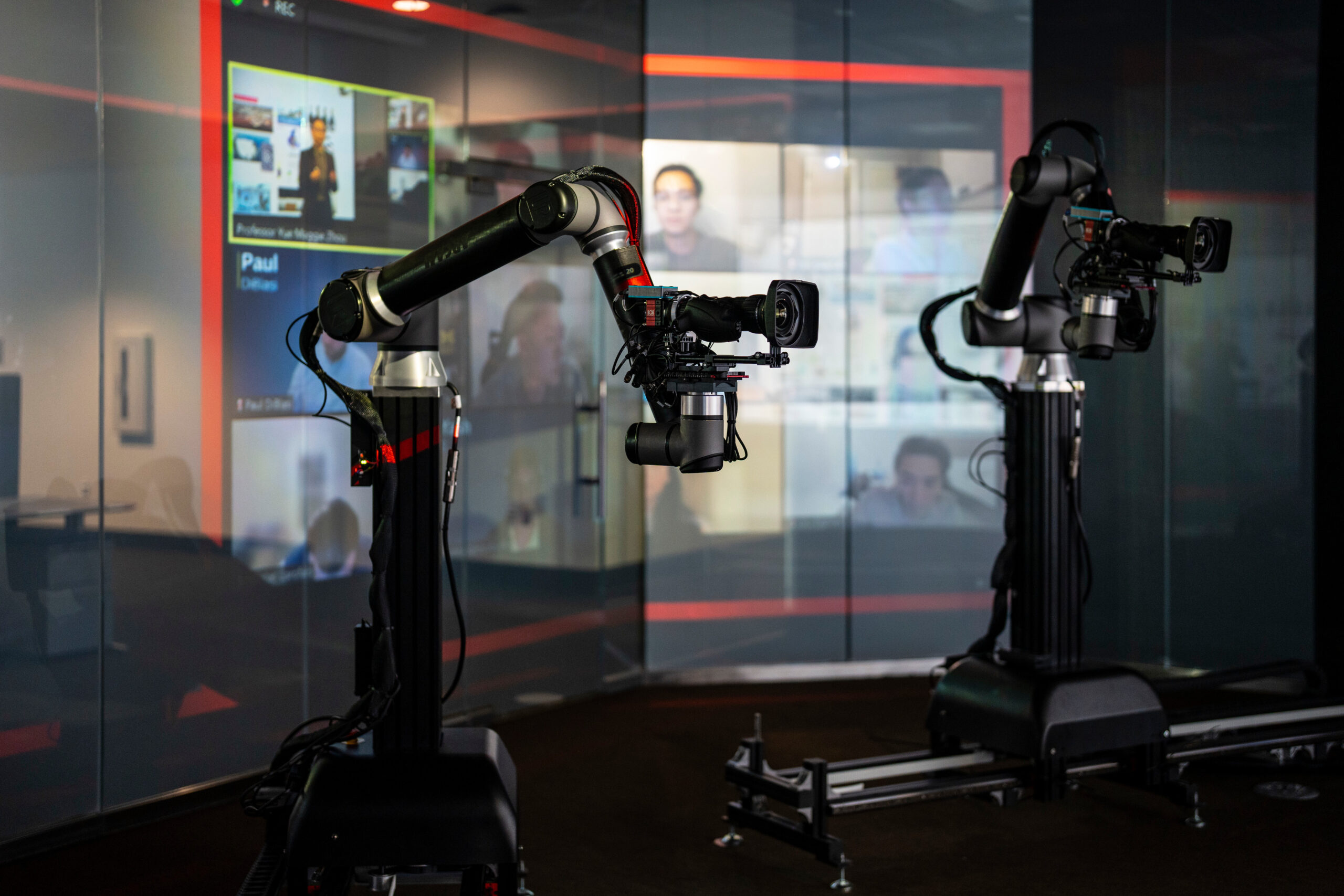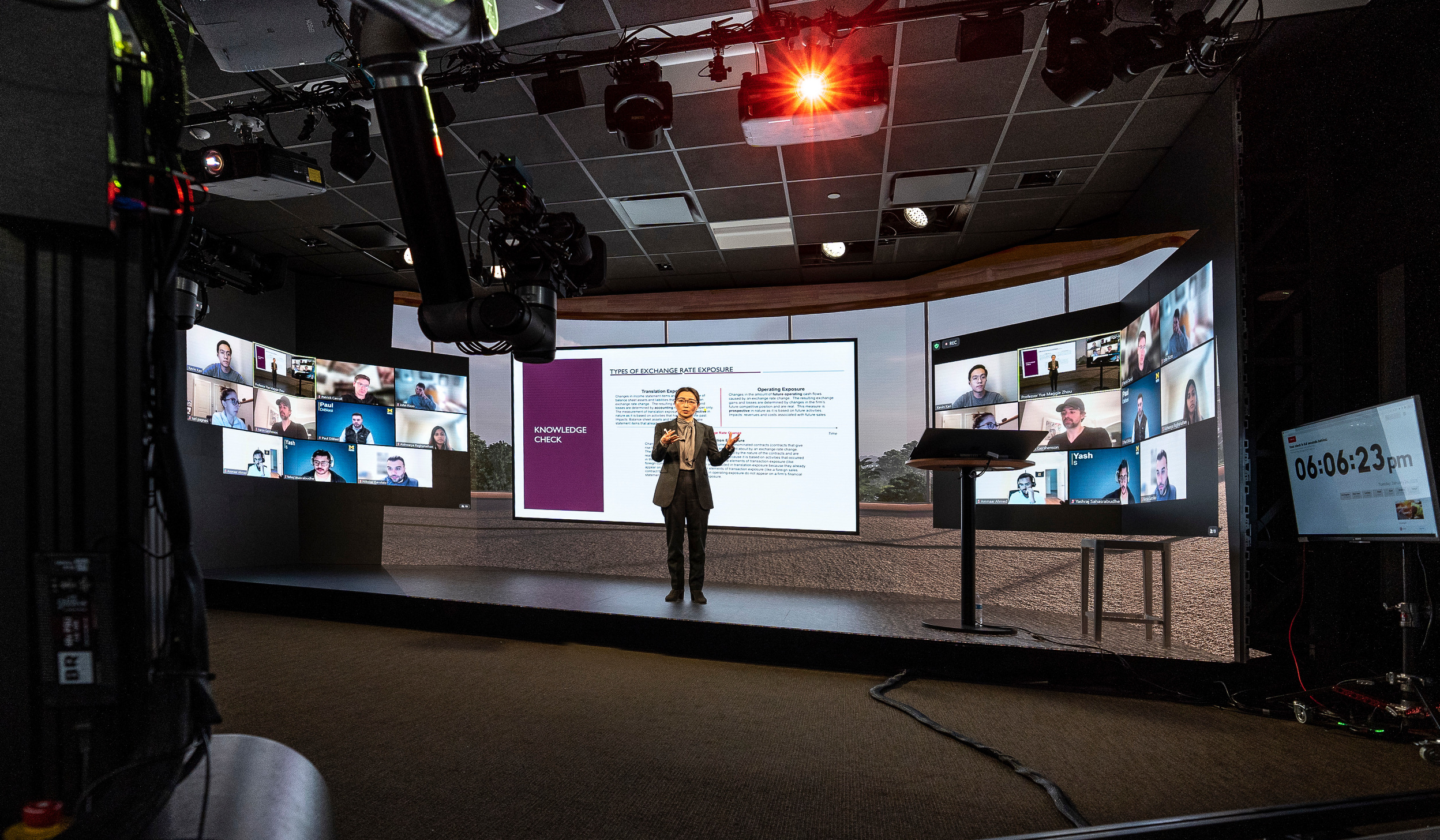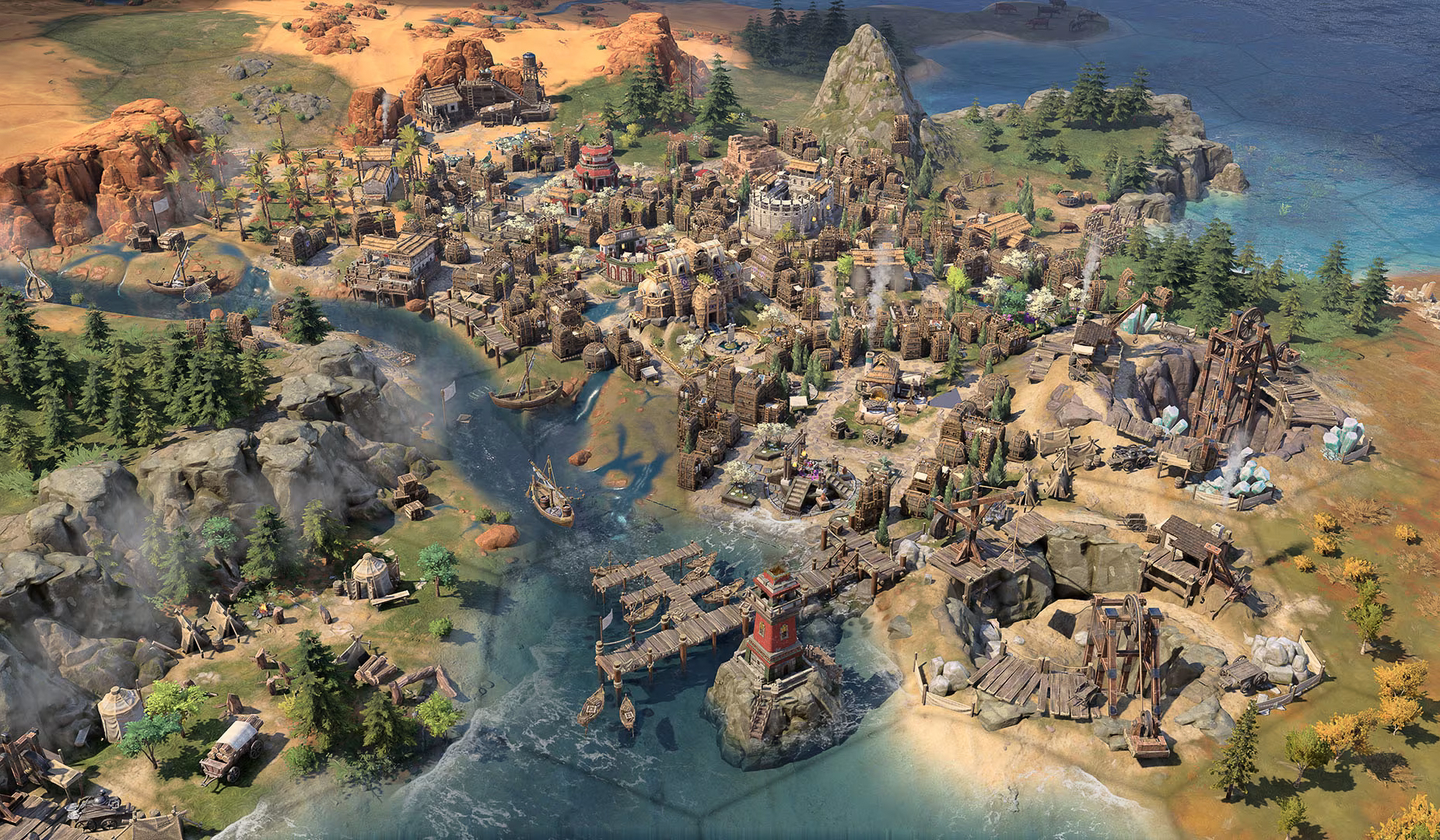The Convatec Digital Learning Studio at the Ross School of Business doesn’t make boring “talking head” videos.
At least, that’s what many call the lectures in online courses that consist of a professor speaking dully into a laptop camera.
The Convatec Studio, which launched in January 2023, is where faculty members film classes for students enrolled in the Online MBA and Executive Education programs. It adds on to an existing studio at Ross. Gregory Barker, who attended U-M in the 1990s and is now the managing director at the office of digital education, spearheaded the development of this studio and now oversees the department.
The original operation, now referred to by Barker and his team as “Studio 1,” opened pre-pandemic and was “the first commercial installation of an XR [Extended Reality] studio in the world,” according to Barker.
Extended reality refers to immersive technologies that blend elements of the digital and physical worlds together. At the new Convatec Studio, for example, faculty members lecture in front of a virtual set designed to resemble an atrium, the Ann Arbor skyline, or anything else Barker’s team can dream up.
“The whole goal for this was [to] increase the engagement of the faculty member and increase the engagement of the student,” Barker says. “Whatever technology we can use to increase that engagement, that’s what we went for.”
If Studio 1 was revolutionary, the Convatec Studio, or Studio 2, offers even greater improvements. The LED screens that outfit the studio have an increased pixel density, for instance, making them easier for faculty members to read from. The new studio also features an automated system of cameras that track a speaker’s movements.

Taken together, Barker says, these details add up to a much more “dynamic” classroom experience.
“[Students] can read a textbook and get all the information they need,” Barker says. What he wanted to know was: “What can we give them that goes beyond the text?” Barker’s answer has amounted to an advanced form of storytelling. What online students are looking for, he says, is “interaction with their faculty member. … They want to be able to build a network of their fellow students. This [technology] actually does allow them to feel like that.”
Barker says his team has worked closely with faculty to ensure not only that each professor is comfortable teaching in what, for most, feels like a radically different environment — closer to a television studio than a traditional classroom — but that they can also capitalize on the new possibilities they’re faced with.
“We do a lot of customization,” he says.
Barker’s team worked closely with one professor, who taught a class on trading floor techniques, to develop a virtual set that closely resembled a trading floor.
The set allowed students to adopt a different “mindset,” according to Barker. Their professor wasn’t “standing in a boring classroom telling [them] he’s on a trading floor.” Instead, the technology allowed both students and professor to come closer than ever to experiencing the feeling of actually being there — wherever ‘there’ happens to be.
“We’re always looking for the next technology that’s going to allow us to further engage students,” Barker says. “We always want to be on the cusp of providing a better experience for faculty and students.”
Barker says the response to the Convatec Studio has been overwhelmingly positive among students. He says it’s the “most gratifying” when students say “It feels more like a live class than I could have ever imagined.”
Natalia Holtzman, MSI’19, is a freelance writer based in Ann Arbor.





